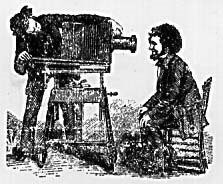In all cultures people are placed into categories based on their gender and are expected to have certain values and social roles according to which category they are put in. Gender studies "looks at these processes of categorization and at the ways in which societies construct, articulate, and police sexuality" (485, Munns and Rajan). The examination of culture studies became a major feature of cultural studies via the women's liberation movements. They believe that women's gender roles are culturally rather than biologically formed. "The body was viewed as a common rack upon which different societies could inflict different norms of behaviour or personality" (140, Sardar and Van Loon). People were viewed as being created by their societies and their gender being created as well. Gender studies is often considered feminist, however, it is concerned with the cultural significance of all formations in gender and sexuality. The gay liberation movement, however, did shift the discourse of sexuality and reopened the issue of gender definition. The "Queer Theory," tries to analyze texts and social practices to expose and replace them with a new sexual and social condition that goes beyond the "hetero/homo duality" (147).
Lastly, discussions over nature vs. nurture are central to most gender studies. Psychology and Anthropology have been significant in generating materials relevant to the nature/nurture debate. It is constantly debated whether , it is nature or nurture that affects gender and identity. According to Munns and Rajan, "Nature and culture, as socially and politically loaded concepts placed in a bi-polar opposition and constantly capable of appropriating to themselves whatever are, the current 'moral panics' over gender, remain important topics of theoretical and empirical investigation" (488). Saying that the debate will only continue and will constantly be used to discuss the current issues in that particular society.
New Key Words: "Nature"
Nature is very complex and had alot of history. In C13, "nature" was referred to as "an inherent or essential quality or character of something" (235). Natural is also considered to be "appropriate" or "fitting." Suggesting that something that is not natural is inappropriate. Also, in C14 in Europe, nature was considered "the inherent force which directs..the world."
Link to Wikipedia:
http://en.wikipedia.org/wiki/Feminist_movement
I thought it was important to know more about the Women's liberation Movement, in order to understand more about how gender studies has changed. "The feminist movement (also known as the Women's Movement or Women's Liberation) is a series of campaigns on issues such as reproductive rights (including abortion), domestic violence, maternity leave, equal pay, sexual harassment, and sexual violence. The goals of the movement vary from country to country, e.g. opposition to female genital cutting in Sudan, or to the glass ceiling in Western countries."
Other Link:
Explains how the term "Queer Theory," came to be. It also talks about what "Queer Theorists" do and how they are different than the people in the Gay Liberation Movement.
http://www.gayhistory.com/rev2/words/queertheory.htm
"Queer theorists are more ambitious than their "Gay Lib" forebears. The Gay Liberation Movement of the 1970s fought to create a place for sexual minorities in Europe and the U. S., but Queer theorists want more than liberation. Their aim is to destabilize cultural ideas of normality and sexuality and terms like hetero- and homosexual which have been used to oppress people who don't conform to the Western ideal of monogamous heterosexual marriage. Many theorists hope that this strategy will undermine the status quo and foster the freedom people need to create their own sexualities."
announcements
This blog was created by and for students in an Introduction to Cultural Studies class at the University of Washington. Through an investigation of urban experience and representation--in theory, in graphic novels and in our own "readings" of Seattle's University District--we considered the formation and history of cultural studies as an (anti)discipline, with a special emphasis on the questions, "What does cultural studies do, and how do you do cultural studies?"
If you'd like to know more about the class, the blog or our U-District artifact project, please contact Gabrielle Dean: gnodean@u.washington.edu.
If you'd like to know more about the class, the blog or our U-District artifact project, please contact Gabrielle Dean: gnodean@u.washington.edu.
Thursday, April 17, 2008
Subscribe to:
Post Comments (Atom)
blog archive
-
▼
2008
(92)
-
▼
April
(35)
- Identity in City of Glass
- History of Origins: Race Studies
- History of Origins: Gender Studies
- History of Origins: Gender Studies
- History of Origins: America
- History of Origins: Race Studies
- History of Origins: Gender Studies
- History of Origins: Race Studies
- History of Origins: Race Studies
- History of Origins: Media and Science
- History of Origins: Media and Science
- History of Origins: Gender Studies
- History of Origins: Media and Science
- History of Origins: European Theory
- History of Origins: European Theory
- History of Origins: European Theory
- History of Origins: European Theory
- History of Origins: European Theory
- History of Origins: America
- History of Origins: European Theory
- History of Origins: America
- History of Orgins: European Theory
- History of Origins: European Theory
- History of Origins: Great Britain
- History of Origins: Great Britain
- Cultural Studies in Britain
- Cultural Studies in Britain
- History of Origins: General
- History of Origins: General
- History of Origins: General
- History of Origins: General
- "Orientalism"
- Are You an Author?
- "Paris, Capital of the 19th Century"
- READING: A WEB MODEL
-
▼
April
(35)

No comments:
Post a Comment